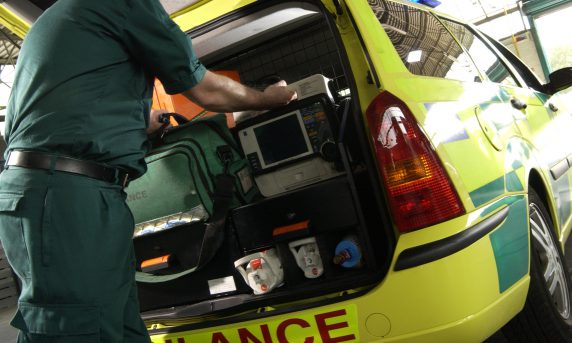A pilot project to place paramedics into GP surgeries in Scotland to ease pressure is set to expand.
Around 30 paramedics who have had additional training have been taking part in the trial which involves seeing patients with acute illnesses and doing home visits.
One paramedic who had been working at GP practices in Inverclyde for the past nine months said their work treating patients with acute illnesses such as chest conditions and urinary tract infections, meant GPs were freed up to deal with patients needing such complex care.
Dr Jim Ward, medical director of the Scottish Ambulance Service, said the project had been set up to improve access, cut waiting times and make greater use of paramedic skills within primary care and was proving a success.
‘GP practices across the whole of Scotland are facing huge pressures; one of these is responding to patients who become unexpectedly unwell and who need to be assessed in addition to all the patients who already have appointments,’ he said.
‘Paramedics are specialised in assessing all types of emergency and urgent presentations and transferring this skillset into Primary Care has seen a real benefit in supporting GPs and others in the primary healthcare team.’
The Scottish Government is planning for an additional 1,000 paramedics to work in support of general practice.
A workforce plan published at the end of last month said this follows a reduction in GP workload.
It said: ‘The Inverclyde Pilot, for example, found that in the first three months following paramedic support to practices being put in place, the percentages of home visits carried out by GPs reduced by over 60%.’
Paramedics have already been used in Wales and Scotland to plug gaps in out-of-hours shifts because of a shortage of GPs. Meanwhile, in England they are doing GP home visits.
And new laws have been put in place to enable paramedics to prescribe medicine.
The Scottish contract which came into force last month is designed to make greater use of a wider primary health care team, leaving GPs as the expert medical generalist.
Dr Alan McDevitt, chair of the BMA’s Scottish GP Committee, said: ‘The new GP contract in Scotland aims to reduce workload pressures and re-establish general practice as an attractive career choice.
‘It provides for an expanded multi-disciplinary team to work with GP practices to provide direct access to services for patients.’
He added: ‘Placing paramedics in GP surgeries is one way in which the practice team can be expanded to help improve access to services for patients and reduce pressures on GPs.’

















